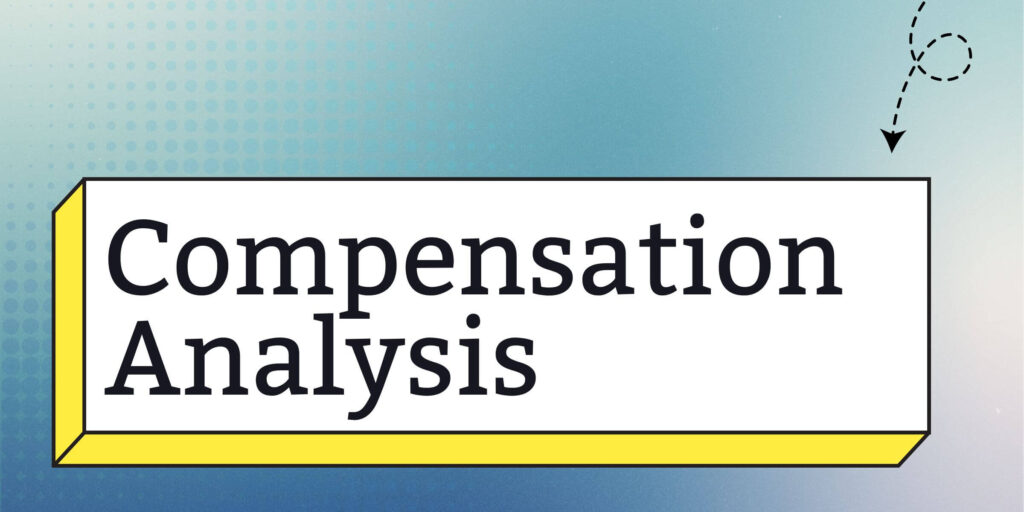Did you know that over half of businesses have trouble setting up sales performance incentives?
If you’re looking to create a sales commission plan that will motivate your sales team and increase sales, you’ve come to the right place.
In this blog post, we’ll discuss what goes into a great commission plan and outline some tips for creating one that works for your business. Sales compensation can be a powerful tool to motivate salespeople to achieve their goals, but it’s important to get it right.
So read on for helpful advice on how to structure your sales commission plan!
1. Choose a Sales Compensation Structure
The first step is to choose a sales compensation structure. There are two common types of sales compensation: draw against commission and straight commission.
With a draw against commission plan, also known as salary plus commission, the salesperson is paid a base salary plus a percentage of their sales as bonus pay. This type of plan provides some guaranteed income, which can help attract and retain top sales talent.
The downside of this type of plan is that it can result in lower commissions for high-performing salespeople since they’re already earning a base salary.
On the other hand, Straight commission plans pay salespeople solely based on their performance. This type of plan can be more motivating, providing higher commissions for top performers. These plans are also called full commission.
However, it can also be riskier for salespeople, as they may not earn anything if they don’t make any sales.
2. Consider Your Sales Cycle
When designing your sales commission plan, it’s important to consider your sales cycle. The length of your sales cycle will impact how you structure commissions.
For example, if you have a long sales cycle, you may consider paying a lower commission rate but extending the period over which commissions are earned. This will give your sales team more time to close deals and earn their commission.
On the other hand, if you have a shorter sales cycle, you may want to consider a higher commission rate to motivate your sales team to close deals quickly.
3. Think About What You Want to Incentivize
Another important consideration is what you want to incentivize with your sales commission plan.
Do you want to encourage your sales team to bring in new business? Or do you want to focus on growing existing accounts?
Your answer to this question will impact how you structure your commission plan.
For example, if you want to incentivize new business, you may want to consider a higher commission rate for new deals.
Suppose you’re looking to grow existing accounts, on the other hand. In that case, you may want to consider a lower commission rate for new deals and a higher commission rate for upselling existing customers.
4. Keep It Fair
It’s important to make sure that your sales commission plan is fair. This means ensuring that all salespeople have a realistic opportunity to earn commissions.
To do this, you’ll want to consider the average deal size and close rate for your industry and your company’s average deal size and close rate.
You’ll also want to ensure that your commission plan aligns with your company’s goals. For example, if your goal is to grow revenue, you’ll want to make sure that your commission plan incentivizes salespeople to bring in new business.
5. Get Input From Your Sales Team
When designing your sales commission plan, it’s important to get input from your sales team. After all, they’re the ones who will be working under the plan!
Get their feedback on what’s worked well in the past, what hasn’t worked well, and what they think would be most motivating.
Their input can be invaluable in helping you design a commission plan that works for both your company and your sales team.
6. Implement and Adjust as Needed
Once you’ve designed your sales commission plan, it’s time to implement it. Start by clearly communicating the plan to your sales team so that they know what to expect.
Then, track results and make adjustments as needed. Be sure to communicate any changes to your sales team so they’re always aware of the plan’s latest version.
A well-designed sales commission plan can be a powerful tool for motivating your sales team and driving results.
7. Pay the Overachievers
When it comes to commission plans, there’s no one-size-fits-all solution. Instead, the best commission plan for your business will depend on a number of factors, including your sales cycle, company goals, and the type of business you’re in.
However, there are some general principles that you can follow when designing your sales commission plan.
For example, you should always reward those who are overperforming. If you notice that someone is not just meeting the goals, but knocking it out of the park, give them a little extra in commissions. This will show them that their hard work is appreciated and encourage them to continue going above and beyond.
Don’t forget to also keep an eye on those who are struggling. If someone is consistently falling short, it may be time to have a conversation about whether the commission plan is realistic.
8. Offer Help to Your Team
Remember that your sales team is not alone in this. They need your help to be successful!
Implementing sales enablement processes will provide them with the necessary resources and support to close deals and reach their goals. This includes things like training, coaching, and access to the right tools and information.
By giving them the resources they need to succeed, you’ll increase the likelihood that they’ll reach their goals—and earn a commission in the process.
Setting up a Pay Structure: What Not to Do
Now that you know some of the things you should do when designing a sales commission plan, let’s consider what not to do.
First, avoid making any changes to the commission plan without first consulting your sales team. This will only serve to frustrate and alienate them. It is also important to remember that many of your team members rely on their commission, so any changes could significantly impact their livelihoods.
Second, don’t make the mistake of thinking that more is always better. Incentivizing your sales team with too much commission can actually backfire.
Too much commission can create an environment of cutthroat competition, leading to unethical behavior and a decrease in morale. It can also cause salespeople to focus on the wrong things, like making a quick sale instead of building a long-term relationship with the customer.
Finally, avoid setting unrealistic goals. If your sales team consistently misses their targets, it’s time to discuss whether the goals are achievable.
Sales Quota Calculator: What to Consider
When it comes time to design your sales commission plan, there are a few things you’ll need to take into account.
First, you’ll need to decide how you want to structure your payouts. There are two common methods for doing this:
Pay per sale: With this method, salespeople earn a commission for each sale they make.
Payout percentage: With this method, salespeople earn a percentage of the total sale price.
Which method you choose will depend on a number of factors, including your sales cycle and company goals.
Second, you’ll need to set some goals. What kind of results do you want your team to achieve?
Be sure to set realistic goals that can be achieved within the timeframe you have in mind.
Finally, you’ll need to calculate your sales quota. This will help you determine how much commission each salesperson needs to earn in order to reach your desired results.
Commission Calculator: Setting Sales Quotas
When calculating your quota, you need to make sure that your expenses break even.
Gather the following information:
- Salaries
- Commission %
- Number of sales reps
- Payroll Tax
- And expenses
These expenses can include:
- Office space
- Supplies and equipment
- Marketing
- Accounting
- Legal
- Insurance
To calculate your quota, simply divide your total expenses by the number of sales reps you have.
For example, if your total expenses are $100,000 and you have ten sales reps, your quota would be $10,000 per rep.
Once you’ve calculated your quota, you can start to design your commission plan. Just remember to keep the following things in mind:
- What kind of results do you want your team to achieve?
- What is your sales cycle?
- How much can you afford to pay out in commissions?
By following these simple guidelines, you’ll be well on your way to designing a sales commission plan that works for your business.
Set Your Sales Commission Plan Today
Now that you know how to build a sales commission plan, it’s time to get started.
Remember to keep your goals realistic, consult with your sales team, and calculate your quota before setting anything in stone.
By following these simple steps, you’ll be well on your way to designing a commission plan that works for your business.







